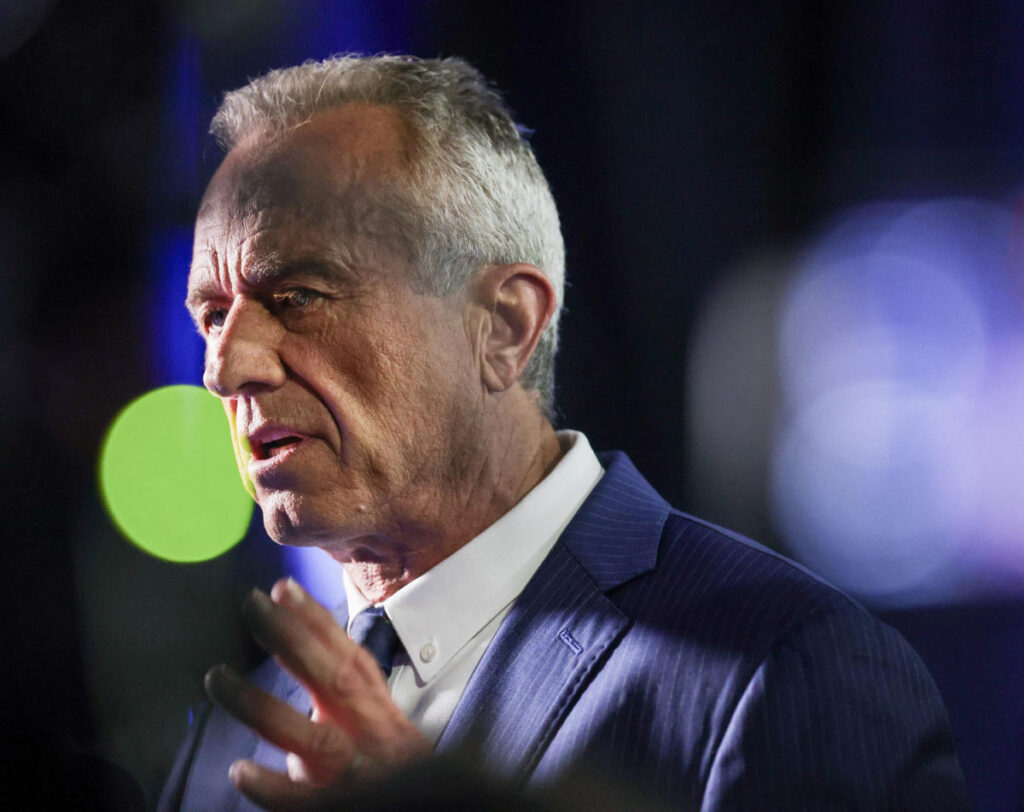The Supreme Court made significant rulings on Tuesday that affected Robert F. Kennedy Jr.’s candidacy in Wisconsin and Michigan, as the justices denied his requests to be removed from the election ballots in those states. This judicial action followed a previous refusal by the Court to allow him onto the ballot in New York. Kennedy’s attempts have drawn attention not only because of his historical lineage but also due to his controversial stances and his recently announced support for Republican candidate Donald Trump after suspending his independent presidential campaign in August. Justice Neil Gorsuch dissented regarding the decision made in Michigan, while there was no such dissent regarding the ruling in Wisconsin, highlighting the differing opinions among the justices on these matters.
Kennedy’s legal team argued that retaining him on the ballots violated his constitutional rights, emphasizing his entitlement to support Trump unequivocally. In their brief for the Supreme Court in the Wisconsin case, Kennedy’s lawyers contended that his political expression was being unjustly stifled. However, attorneys representing the Wisconsin Election Commission countered that granting Kennedy’s request just before the election could require complicated logistical adjustments, such as applying corrective stickers over his name on millions of ballots already printed, complicating the voting process significantly.
In Michigan, Kennedy’s lawyers similarly asserted that Secretary of State Jocelyn Benson was infringing upon his First Amendment rights by including him on the ballot without his consent. The state’s legal representatives pointed out the practical implications of removing Kennedy from the ballot at such a late stage, noting that over 1.5 million ballots had already been returned and an additional 263,634 had been cast early. This highlights the reality that voters likely integrated Kennedy into their voting decisions. The implication was that maintaining his name on the ballot was an integral part of the electoral process, deserving of the same protections as votes cast for more prominent candidates.
Justice Gorsuch’s dissent specifically in the Michigan case referenced previous opinions from federal appeals court judges appointed by Republican presidents, who expressed reservations about the implications of a ruling against Kennedy. His dissent suggests a broader contemplation among justices concerning the implications of First Amendment rights and political candidacy in election law. While the majority of the Court remained aligned on dismissing Kennedy’s appeals, Gorsuch’s perspective introduces nuanced considerations about how the Court interprets free speech and electoral fairness.
The state lawyers in both Michigan and Wisconsin pointed out the contradictions in Kennedy’s behavior, noting his simultaneous attempts to be included on the New York ballot even while expressing concerns about reputational damage and the potential for voter confusion in other states. This inconsistency raised questions about the sincerity and basis of his claims as he navigated the electoral landscape, emphasizing the need for a coherent application of rights across various states rather than selective focus based on convenience.
Overall, the Supreme Court’s rejection of Kennedy’s appeals serves both as a reminder of the complexities surrounding electoral law and candidates’ rights and as an illustration of the legal and practical challenges faced right before elections. As Kennedy’s political journey evolves amid his support for Trump and tumult within his campaign, these judicial decisions underscore the ongoing tensions within the American electoral system, questions of representation, and the complex interplay between rights and responsibilities in electoral participation.

